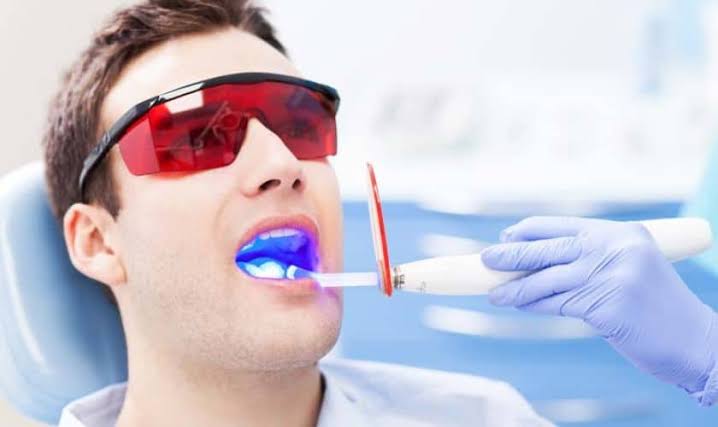In recent years, laser technology has revolutionized the field of dentistry, offering patients and dental professionals a range of benefits that enhance both treatment outcomes and overall experiences. Laser dentistry utilizes focused light beams to target specific areas of the mouth, enabling more precise, effective, and comfortable treatments. From treating gum disease to teeth whitening, laser dentistry covers a wide array of dental procedures. In this article, we will explore the key benefits of laser dentistry for precision treatment and why it has become an essential tool for modern dental care.
1. Greater Precision and Accuracy
One of the most significant advantages of laser dentistry is its unparalleled precision. The focused nature of lasers allows dental professionals to target very specific areas in the mouth, which minimizes damage to surrounding tissues. For example, during soft tissue surgeries, lasers can precisely remove decayed or infected tissue without affecting the healthy areas around it. This precise targeting results in quicker healing and better outcomes for patients.
Additionally, laser dentistry is highly effective in cavity detection and removal. By using lasers, tandimplantat stockholm can accurately detect and remove cavities in their early stages, preventing the need for more invasive treatments later on. This level of precision reduces the amount of tooth structure that needs to be removed, preserving as much of the natural tooth as possible.
2. Minimized Discomfort and Pain
Traditional dental procedures can sometimes cause discomfort, particularly when involving invasive tools like drills or scalpels. Laser dentistry significantly reduces this discomfort by eliminating the need for these traditional tools in many procedures. Lasers are often used in place of drills for cavity preparation, and because they produce minimal heat and vibration, patients experience far less pain.
Moreover, because laser treatments often involve less contact with tissue and nerves, patients frequently report less post-operative pain. This is especially beneficial in gum surgeries, where lasers can seal nerve endings and blood vessels as they cut, resulting in less bleeding and faster recovery. Many patients find that they require little to no anesthesia during laser dental procedures, which also reduces the risk of complications associated with anesthesia.
3. Faster Healing and Recovery Time
Laser dentistry offers another key benefit: significantly faster healing and recovery times. Traditional dental procedures, especially those involving cutting and suturing, can lead to swelling, bleeding, and a prolonged healing process. Lasers, on the other hand, promote faster healing because they are less invasive and cause less trauma to the tissues.
In soft tissue procedures like gum reshaping or treating periodontal disease, lasers can simultaneously cut and cauterize the tissue, which minimizes bleeding and promotes quicker healing. This also means there’s less need for sutures or other post-operative care measures. The laser’s ability to reduce the risk of infection by sterilizing the area as it works further aids in a quicker recovery.
4. Reduced Risk of Infection
One of the unique benefits of laser dentistry is its ability to significantly reduce the risk of infection. The high-energy light beam used in laser treatments has a sterilizing effect, which eliminates bacteria in the targeted area. This is particularly useful in procedures that involve treating infections, such as gum disease or root canals, where bacterial contamination can lead to complications.
The sterilizing effect of lasers means that there is a lower likelihood of post-procedure infections, and patients can enjoy faster, complication-free recoveries. This makes laser dentistry an ideal choice for individuals with compromised immune systems or those prone to infections.
5. Versatility in Dental Treatments
Laser dentistry is extremely versatile and can be used in a wide variety of dental procedures. Some of the most common applications of laser technology in dentistry include:
- Gum disease treatment: Lasers can remove inflamed gum tissue and kill bacteria in periodontal pockets, promoting healthier gums and reducing the risk of tooth loss.
- Cavity treatment: Lasers can detect cavities in their earliest stages and remove decay with minimal discomfort.
- Teeth whitening: Lasers can accelerate the teeth whitening process, delivering faster and more uniform results.
- Biopsies: Lasers can be used to perform biopsies or remove abnormal tissue for testing, with minimal discomfort and quicker healing.
- Gum reshaping: For patients with a “gummy” smile, lasers can precisely reshape the gumline for a more aesthetically pleasing appearance.
This versatility allows dentists to offer a wider range of services with improved outcomes for their patients.
6. Improved Patient Experience
Many people experience dental anxiety, often due to fear of pain or the sound of dental drills. Laser dentistry significantly improves the patient experience by providing a more comfortable, less intimidating environment. The absence of loud drilling sounds, reduced need for anesthesia, and minimal discomfort during and after procedures help alleviate anxiety for many patients. This is especially beneficial for children or adults who may have had traumatic dental experiences in the past.
Furthermore, because laser treatments are often quicker and more efficient than traditional methods, patients spend less time in the dental chair. The overall experience becomes more convenient, encouraging regular dental visits and proactive oral care.
7. Safe and Effective for All Ages
Laser dentistry is not only effective but also safe for patients of all ages. Whether it’s a child needing a frenectomy (tongue-tie correction) or an adult undergoing gum disease treatment, laser technology provides a gentle yet highly effective option. Since lasers can reduce the need for anesthesia and minimize pain, they are especially useful in pediatric dentistry.
For elderly patients or those with pre-existing health conditions, the reduced risk of infection and quicker recovery times offered by laser dentistry are significant benefits. This technology allows dental professionals to tailor treatments that are both safe and efficient for everyone, regardless of age or health status.
Conclusion
Laser dentistry offers numerous benefits, from precision and reduced discomfort to faster healing and improved safety. As more dental practices adopt this technology, patients will continue to experience enhanced treatments with less pain, quicker recovery times, and improved outcomes. Whether you need a simple teeth whitening or a more complex procedure like gum surgery, laser dentistry is a game-changing tool that provides superior results with minimal inconvenience.
The precision, versatility, and patient-friendly nature of laser treatments have cemented their place in modern dental care, making laser dentistry a worthwhile consideration for anyone seeking high-quality, efficient dental treatment.
Read also : How to Prevent Gum Disease and Gingivitis: A Complete Guide!
Stay in touch to get more news & updates on News Break Blog!

